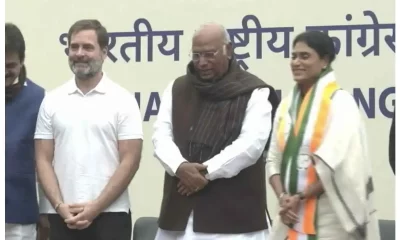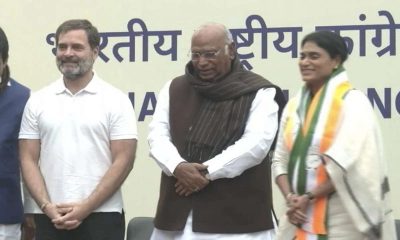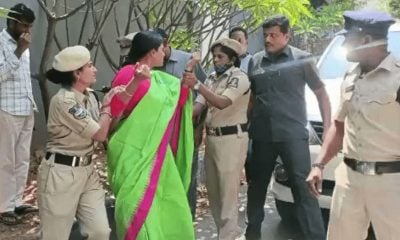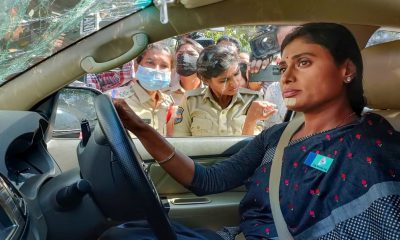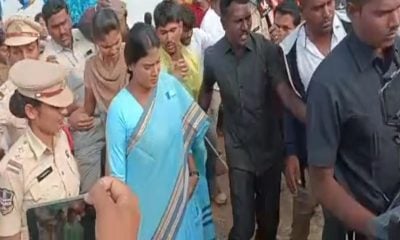Latest Politics News
Telangana YSR’s YS Sharmila’s car towed away while she was in it, day after convoy attack | Watch
YS Sharmila, while speaking to the press, after the Monday clash stated that her party and she have been holding peaceful padayatra against the ruling party and added that her rise in popularity catapulted TRS CM and his men to stop her at any cost.

India News
Ajit Pawar’s son seeks detailed probe into Baramati plane crash
Jay Pawar has demanded a comprehensive probe and action against the aviation firm after the Baramati plane crash that killed Ajit Pawar and four others.
India News
PM Modi sends congratulatory letter to Tarique Rahman after swearing-in
Lok Sabha Speaker Om Birla handed over Prime Minister Narendra Modi’s congratulatory letter to Bangladesh Prime Minister Tarique Rahman following his swearing-in and extended an invitation to visit India.
India News
Navjot Kaur Sidhu says Rahul Gandhi disconnected from ground realities
Navjot Kaur Sidhu criticises Rahul Gandhi after exiting Congress, alleging corruption in the Punjab unit and predicting defeat in upcoming state elections.
-

 India News13 hours ago
India News13 hours agoDMK leader’s son arrested after car rams family in Krishnagiri, one dead
-

 India News12 hours ago
India News12 hours agoRSS chief backs nationwide rollout of Uniform Civil Code, cites Uttarakhand model
-

 India News3 hours ago
India News3 hours agoAs stealth reshapes air combat, India weighs induction of Sukhoi Su-57 jets
-

 Cricket news2 hours ago
Cricket news2 hours agoRinku Singh returns home from T20 World Cup camp due to family emergency
-

 India News1 hour ago
India News1 hour agoTamil Nadu potboiler: Now, Sasikala to launch new party ahead of election

